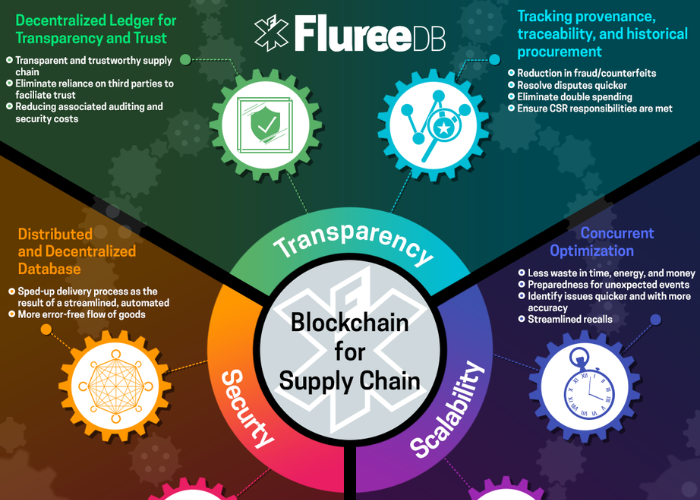In the past decade, the world has seen a tremendous rise in the use of technology in various facets of life. This has changed the way businesses are conducted and has made it possible for them to provide better services to their customers. One such technology that is being used in various industries is blockchain. Blockchain technology has revolutionized the way data is stored, shared, and accessed. It is a distributed ledger technology that allows for secure and transparent transactions between two or more parties.
What is Blockchain?
Blockchain is a distributed digital ledger technology that records and stores data in a secure, tamper-proof, and immutable way. It is a decentralized form of record-keeping that does not require a central authority to store and manage data. Instead, it utilizes cryptography to securely link the data records, which are stored in blocks, across a peer-to-peer network. Every transaction is recorded, and each block is connected to the previous and following blocks, forming a chain of blocks, hence the name “blockchain”. This chain can be seen as a digital ledger or database, with each block representing a transaction.
Blockchain technology is revolutionizing the way data is stored, managed, and shared. It is being used in various industries, such as finance, healthcare, and even the government. In the financial sector, blockchain technology can be used to securely record and transfer transactions, store digital assets, and automate payments. In healthcare, blockchain technology can be used to store and share medical records and provide secure access to patient data. In the government, blockchain technology can be used to streamline the voting process, secure citizen data, and automate taxation.
Overall, blockchain technology has the potential to revolutionize the way data is stored, shared, and managed. It has the potential to increase security, reduce fraud, and provide a secure platform for digital transactions. As more and more industries discover the potential of blockchain technology, it will likely become the standard for data management shortly.
Blockchain and Supply Chain Management
Blockchain technology is revolutionizing the way supply chain management works. It is a distributed ledger technology that allows for secure, transparent, and immutable transactions and record-keeping for any asset, including physical and digital goods. With blockchain, supply chain processes can be tracked, monitored, and managed securely and efficiently.
Blockchain technology is changing the way supply chain management is done. It allows for more secure, efficient, and transparent operations. Blockchain technology can be used to track products from the source to the end user, allowing for real-time visibility throughout the entire process. This helps to reduce fraud and improve accuracy, as well as reduce costs associated with manual processes.
Benefits of Using Blockchain for Supply Chain Management
Using blockchain technology in supply chain management can help companies to reduce costs, speed up processes, and improve the accuracy of data. It can also help to reduce fraud and increase transparency. By using blockchain technology, companies can ensure that all stakeholders in the supply chain have access to accurate and up-to-date information. This will help to reduce risks and prevent disputes. Furthermore, blockchain technology can help to reduce paperwork and administrative costs associated with the supply chain.
Challenges in Implementing Blockchain for Supply Chain Management
Despite the numerous benefits of using blockchain in supply chain management, there are still some challenges that need to be addressed. One of the main challenges is the lack of widespread adoption. Many companies are still hesitant to adopt new technologies, due to the cost and complexity associated with them. Additionally, blockchain technology is still relatively new and several regulatory issues need to be addressed. Finally, there is also the issue of scalability, as the technology is still not able to handle large amounts of data.
Conclusion
Blockchain technology has the potential to revolutionize the way supply chain management is conducted. By utilizing this technology, companies can reduce costs, increase efficiency, and improve transparency. Despite the numerous benefits, there are still some challenges that need to be addressed before this technology can be widely adopted. These include the lack of widespread adoption, regulatory issues, and scalability. With the increasing interest in this technology, these issues are likely to be addressed shortly.






